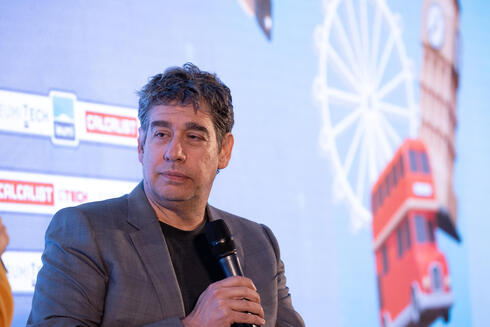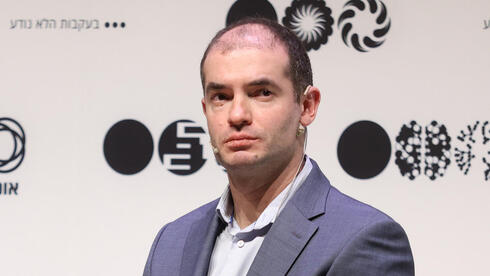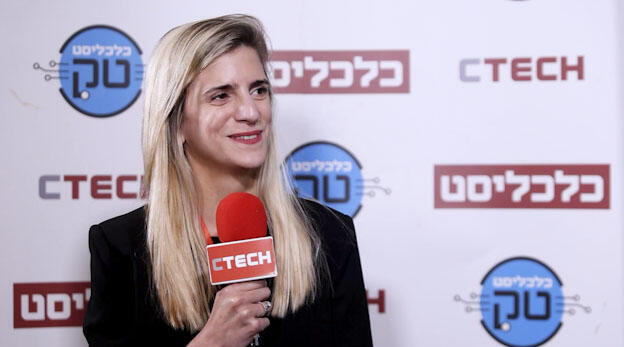
High-Tech Trendsetters
Wiz, Kela, and the future of Israeli tech: How local startups continue to thrive against the odds
Israel’s tech industry has suffered many hits in the past year as it has persevered amidst the ongoing war against Hamas and Hezbollah. Despite the many challenges this has posed, the industry has continued to register exits, including some record-breaking deals, and produce important trendsetters in AI, defense, cyber and other areas.
Israeli high-tech has taken some severe blows over the past two years: from the global tech recession, to the damage caused by the government’s attempted judicial overhaul, to the slowdown caused by the mass call-up of army reservists in Gaza and the north. These hits, which affected the entire economy, were felt even more acutely in the high-tech sector due to its heavy reliance on foreign investment. The presence or absence of venture capital funds and the billions of dollars in their coffers are the reason foreign investors, companies which succeeded in achieving exits this year despite the adverse conditions, and even a few patriotic entrepreneurs were included in Calcalist’s list of the 100 most influential people of 2024.
Foreign investment
Foreign investors are the barometer for the state of Israel’s economy. This is the case when a country is an "island of stability," but one that is dependent on exports and foreign investments. The importance of foreign capital is felt across all sectors of the economy, but in high-tech, it’s the oil that keeps the economy’s engine moving.
About 80–90% of startup funding in Israel comes from abroad, whether directly from foreign VCs or from investors putting money into Israeli VCs. Local investment bodies - mainly insurance and financial companies - have yet to truly learn how to invest in high-tech, and their shareholdings in local tech companies are low compared to global standards. Another segment of Israeli high-tech responsible for employing a quarter of its workers is dependent on foreign money as well: international companies like Microsoft, Apple, Intel, and many smaller, lesser-known ones. About 500 such companies currently operate in Israel.
In good times, foreign investor interest in Israel generates buzz around the economy and strengthens the shekel. During the peak of the tech bubble in 2021, it even led to Israeli companies' valuations surpassing American ones due to fierce competition. However, this disproportionate interest means that during bad times Israel is much more exposed to the whims of foreign investors.
Related articles:
Foreign investment in Israeli tech has been low since early 2023 due to the judicial overhaul, though it surprisingly improved right after October 7, as foreign bodies believed the government would abandon the reform and focus on the recovery. But it has since become clear that both assumptions were incorrect, and today, there has been a noticeable cooling of foreign investor interest.
According to a recent survey by Start-Up Nation Central (SNC), half of Israeli high-tech companies had canceled investments since the outbreak of the war. So far, this hasn’t been reflected in the numbers, and the pace of capital raising in high-tech has remained surprisingly strong this year. Remarkably, some large and respected investment bodies, like Sequoia, began operating here just this year.
Yet the challenge remains; Israeli entrepreneurs have little local support to rely on, and foreign investors willing to invest often demand that new companies register outside of Israel. Some activity has even turned into a kind of business philanthropy, with Jewish investors motivated to support the state’s industry. This year, they were somewhat patient, likely due to sympathy, but they won’t have the patience for another year like 2023 and 2024.
Exits
The word "exit" holds a place of honor in the Israeli lexicon as the Israeli answer to the term "American dream." Astonishingly, despite 2024 being a year of crisis and war in Israel, the Israeli exit machine has not stopped. Since October 7, Israeli companies have been sold for more than $12 billion, similar to 2023.
However, there’s a catch: over the past year, there have been many more deals involving relatively young startups, sold for hundreds of millions of dollars - lower than what Israeli entrepreneurs would have agreed to in 2021. Significant exits positively impact the local economy, contributing to tax revenues and national morale. Exits made under pressure, however, can have a negative impact as they cut down the tree on which local tech grows.
In 2024, every exit (most of which were sales to foreign companies) shrinks the future layer of large Israeli companies. Over the last decade, one of the deep and significant changes in Israeli high-tech was the realization that it’s possible to grow into a big company independently, like Monday, Taboola, JFrog, and many others. The upheaval that Israel has experienced since the early days of the judicial overhaul and now the war in Gaza and the north has affected entrepreneurs who prefer to minimize risk and take the cash while they can.
Entrepreneurs and founders
Nir Zuk, the first Israeli to establish a tech company that reached a valuation of more than $100 billion, deliberately chose not to manage Palo Alto Networks but to continue leveraging his advantage as the CTO of the cybersecurity giant, shifting more and more of its focus to Israel. Zuk, who moved back to Israel during the COVID-19 pandemic after more than two decades in the U.S., wants to deepen his renewed relationship with Israelis. He’s currently launching Air Haifa, a low-cost airline that will operate flights from Haifa to Eilat and several destinations in the Mediterranean basin. Simultaneously, he’s working on establishing a digital bank called ESH.
Additionally, over the past year, even those who’ve never heard of Zuk, have encountered his new media platform, Relevant, which produces videos on various current affairs topics. This is another way Zuk is connecting with the Israeli public, founded together with leading liberal media figures, with the explicit goal of strengthening Israeli democracy.
When it comes to artificial intelligence, Israelis should look to Ilya Sutskever, the genius who co-founded OpenAI with Sam Altman in 2015 and was its chief scientist until he resigned this year following a series of internal upheavals. He has now set out on his own path. Sutskever’s new journey will include Israel, as he announced the establishment of his own startup which will build a new generative AI model, based in both Silicon Valley and Tel Aviv. His company, Safe Superintelligence, has already raised a staggering $1 billion and is actively hiring employees in Israel.
For now, the Israeli connection is mainly because two of Sutskever’s partners, Daniel Gross and Daniel Levy, are Jewish, and also because Sutskever himself is Israeli and lived here for about a decade after immigrating with his family from Russia until they moved to Canada when he was 15. If Sutskever’s new startup attains even half the success of OpenAI, Israel will undoubtedly find itself on the global AI map.
Assaf Rappaport and his three co-founders at Wiz manage to surprise the cybersecurity industry every year. The four, who together founded Adallom which was acquired by Microsoft, founded Wiz with the clear intention of going all the way this time. From the very beginning, the company attracted attention, with valuations in each round of capital raising consistently perceived as too high, and rapid growth, now reaching ARR of over $500 million.
In the past summer reports surfaced that Google was planning to buy Wiz for around $23 billion. The report was never officially confirmed by Google, but it was clear that an offer of some kind had been made to the company. To the government's dismay, as Rappaport fought it during the judicial reform, eagerly anticipating the vast sums of money that would fill its coffers, and to the disappointment of employees and investors who dreamed of massive payouts, the founders politely declined the offer. No Israeli company has ever received such a large offer, and no private cybersecurity company in the world, and, of course, very few companies in any country or sector, have turned down such an offer because they believe that they will be worth more than that in the future.
Hamutal Meridor, who is not yet widely known to the public, could become a pioneer and trendsetter in Israel’s up and coming tech sector: defense-tech, which focuses on technological systems for military use. Having served in the IDF’s elite intelligence unit and later managed the local operations of Palantir, a mysterious military software company now considered one of the hottest stocks on Wall Street, Meridor has accumulated the right knowledge and skills. A few months ago, completely under the radar, she broke several records in Israel's tech ecosystem.
Her startup, Kela, which she founded alongside Alon Dror at the beginning of 2024, has become one of the most sought-after companies in the field. What began as a regular capital raising for an early-stage startup took a turn after Sequoia, one of the largest venture capital firms in the world, pushed out all other investors who wanted to participate in the round and took over the entire investment for itself.
The funds had barely reached the startup’s bank account before another firm guaranteed Kela a second round of funding. Images from the Middle East and Ukraine illustrate to the world that warfare is transforming to a reliance on UAVs and advanced technologies, bringing artificial intelligence into the battlefield. Israel, led by figures like Meridor, has the capability, creativity, and, unfortunately, the laboratory, to test the next generation of military technologies.




